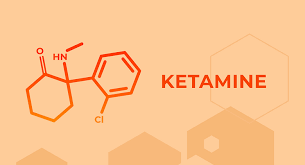Ketamine, a drug once primarily associated with anesthesia and recreational use, BUY KETAMINE ONLINE has emerged in recent years as a potential game-changer in the fields of psychiatry and pain management. Its unique properties, mechanism of action, and transformative potential have propelled it into the spotlight as researchers and clinicians uncover its multifaceted applications.
What Is Ketamine?
Ketamine is a dissociative anesthetic first synthesized in the early 1960s. Approved by the U.S. Food and Drug Administration (FDA) in 1970, it was initially used as a surgical anesthetic for humans and animals. Unlike traditional anesthetics, ketamine does not depress respiratory function, making it particularly valuable in emergency and combat settings.
Its dissociative effects, however, gave rise to its reputation as a recreational drug. Users reported feelings of detachment, euphoria, and hallucinations—effects that led to its classification as a Schedule III controlled substance in the United States.
Mechanism of Action
Ketamine works primarily by antagonizing the N-methyl-D-aspartate (NMDA) receptor, a critical player in excitatory neurotransmission in the brain. By inhibiting these receptors, ketamine disrupts the flow of glutamate, leading to its anesthetic and dissociative effects. Additionally, ketamine stimulates the release of brain-derived neurotrophic factor (BDNF), which plays a key role in neuroplasticity—the brain’s ability to reorganize and adapt.
Revolutionizing Mental Health Treatment
In recent years, ketamine has gained attention for its rapid and profound effects on treatment-resistant depression (TRD), anxiety, and post-traumatic stress disorder (PTSD). Traditional antidepressants, such as selective serotonin reuptake inhibitors (SSRIs), can take weeks or even months to show efficacy, if at all. In contrast, ketamine often provides relief within hours.
Ketamine for Depression
Studies have shown that ketamine, administered in low doses, can produce significant and lasting improvements in depressive symptoms after just one or two treatments. These findings have spurred the rise of ketamine clinics offering infusions for mental health conditions. Esketamine, a nasal spray derived from ketamine, received FDA approval in 2019 for use in patients with TRD, further validating its role in psychiatric care.
Mechanism in Psychiatry
Ketamine’s rapid antidepressant effects are thought to stem from its impact on glutamate pathways. By enhancing synaptic plasticity and promoting the growth of new neural connections, ketamine helps “reset” dysfunctional brain circuits associated with depression.
Pain Management
Ketamine is also making waves in pain management. It has been used as a potent analgesic for chronic pain conditions, such as complex regional pain syndrome (CRPS) and fibromyalgia. Its NMDA receptor blockade helps modulate pain signals, providing relief in cases where opioids and other treatments have failed.
Challenges and Risks
Despite its promise, ketamine is not without challenges. Its dissociative effects can be unsettling for some patients, and its long-term safety profile remains under study. Prolonged use or abuse can lead to cognitive impairments and bladder dysfunction, a condition known as ketamine-induced cystitis. Moreover, the potential for misuse underscores the need for careful regulation and oversight.
Future Directions
Research into ketamine’s therapeutic potential continues to expand. Studies are investigating its efficacy in treating conditions like bipolar disorder, obsessive-compulsive disorder (OCD), and even substance use disorders. Additionally, scientists are exploring next-generation drugs that mimic ketamine’s rapid-acting antidepressant effects without its dissociative side effects.
Conclusion
Ketamine’s journey from a battlefield anesthetic to a modern therapeutic marvel is a testament to the evolving understanding of brain chemistry and mental health. While its application requires careful consideration and monitoring, its potential to transform lives is undeniable. As research progresses, ketamine may pave the way for a new era of mental health and pain management, offering hope to millions worldwide.




